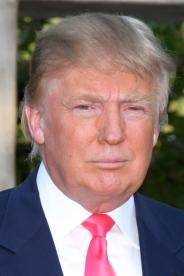President Trump recently issued two executive orders that aim to reform administrative regulations and improve domestic energy production. On January 30, 2017, President Trump issued Executive Order 13771, “Reducing Regulation and Controlling Regulatory Costs,” which, among other things, introduced a regulatory impact cost cap for 2017. On March 28, 2017, President Trump issued Executive Order 13783, “Promoting Energy Independence and Economic Growth,” which instructed an agency review of regulations that hinder domestic energy production.
In response to the executive orders, the Environmental Protection Agency (EPA) started the process of reconsidering multiple Obama-era rules, several of which are the topic of ongoing litigation. Consequently, the EPA filed motions to stay the litigation and motions for continuation of oral argument while it reconsiders the rules. Below is a chart that provides updated status of some of the seminal cases that the EPA requested to delay.
|
Case Name |
Subject of Litigation |
Summary |
Status |
Outcome |
|
West Virginia v. EPA, No. 15-1363 (D.C. Cir.) |
Clean Power Plan Rule under the Clean Air Act (CAA) |
In 2015, the EPA promulgated a rule using its Clean Air Act authority, informally called the Clean Power Plan. The rule established carbon dioxide emissions guidelines for existing fossil fuel fired electricity generators under Section 111(d) of the CAA. Among other issues, petitioners challenge the EPA’s authority to promulgate the rule. |
Motion for abeyance filed March, 28 2017 |
|
|
North Dakota v. EPA, No. 15-1381 (D.C. Cir.) |
111(b) Rule addressing new, modified, and restructured sources “Carbon Pollution Standards” under the CAA |
In 2015, the EPA promulgated a rule regulating carbon dioxide greenhouse gas emissions from new fossil fuel fired electricity generators and stationary combustion turbines under Section 111(b) of the CAA. Petitioners argue that the technology that the EPA bases the standards on is not commercially available or feasible. They also argue that the EPA improperly relied on inaccurate demonstrations of the technology in crafting the rule. |
Motion for abeyance filed March, 28 2017 |
|
|
American Petroleum Institute v. EPA, No. 13-1108 (D.C. Cir.) |
New Source Performance Standards under the CAA |
In June 2016, the EPA issued a rule limiting methane and other emissions for new oil and natural gas infrastructure. In the current case, the industry groups argue that the EPA doesn’t have CAA authority to regulate methane from oil and gas operations. |
Motion for abeyance filed April 7, 2017 |
|
|
Southwestern Electric Power Co. v. EPA, No. 15-60821 (5th Circuit). |
Effluent Limitation Guidelines under the Clean Water Act |
On April 12, 2017, EPA announced that it will reconsider its 2015 rule on effluent limitations guidelines, which regulate waste water from power plants under the Clean Water Act. The EPA also announced it will administratively stay future deadlines under the rule.
The current case represents industry groups’ challenge to the EPA, arguing that the EPA violated the Administrative Procedure Act and the Clean Water Act when it promulgated the rule. |
Abeyance motion filed April 14, 2017
Granted April 24, 2017 |
120-day stay |
|
Murray Energy Corp. v. EPA, No. 16-1127 (D.C. Cir.). |
Supplemental Finding to the Mercury Air Toxics Standards (MATS) Rule under the CAA |
In April 2016, EPA announced a Supplemental Finding that it is “appropriate and necessary” to regulate power plants under the CAA even after considering costs associated with the proposed regulations. The finding reinforced its emissions standards under the MATS rule. Murray Energy brought suit challenging the rule’s cost-benefit analysis. |
Motion to continue oral argument filed April 18, 2017 |
|
|
ARIPPA v. EPA, No. 15-1180 (D.C. Cir.) |
MATS Rule under the CAA |
This case represents industry groups’ initial challenge of the EPA’s MATS rule. Although industry groups later tried to combine this challenge with the Murray case, the D.C. Circuit kept them separate. |
Motion to continue oral argument filed April 18, 2017 |
|
|
Walter Coke Inc. v. EPA, No. 15-1166, (D.C. Cir.) |
Startup, Shutdown, and Malfunction (SSM) State Implementation Plan (SIP) call under the CAA |
In 2015, the EPA issued its SSM SIP Call. The rule required 36 states to amend their SIPs relating to SSM events at power plants and facilities to comply with a revision in policy based on a court decision. Industry organizations and states challenged the EPA action as being not based on a statutory requirement or new rule. |
Motion to continue oral argument filed April 18, 2017
Granted April 24, 2017 |
90-day stay |



 i
i


